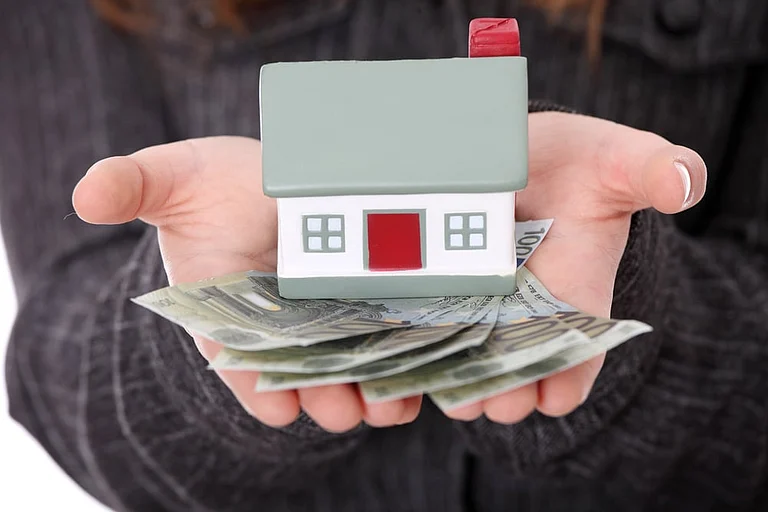A Delhi High Court ruling could have implications for thousands of property owners in India, as it clarifies that owning multiple floors in the same building does not qualify as owning more than one residential property under Section 54F of the Income-tax Act, 1961. This ruling paves the way for making long-term capital gains (LTCG) available to more taxpayers in future.
Owning Multiple Floors Doesn’t Disqualify You From Tax Exemption Under Section 54F, Rules Delhi HC
If you own several floors in the same building that will not disqualify you from claiming tax exemption under Section 54F of the Income-tax Act, 1961, the Delhi High Court has ruled in a recent judgment
The key legal question was straightforward: If a person owns several floors in the same building, does that disqualify them from claiming tax exemption under Section 54F, which is reserved for those owning only one residential property at the time of sale?
The Delhi High Court said in its judgment, “We find it difficult to accept that, in the given facts, different floors of a house are required to be considered as multiple residential houses.” It also dismissed the income tax department’s attempt to treat each floor as a separate property, according to a report in the Economic Times.
The Case Behind the Verdict
In her income tax return for Assessment Year 2011–12, Lata Goel had declared capital gains from the sale of shares and claimed an exemption of Rs 90 crore under Section 54F of the Income-tax Act, 1961. She argued that the proceeds were used for buying a new residential property, making her eligible for the full deduction.
However, in 2015, the assessing officer (AO) contested this claim and limited the exemption to Rs 30 crore. The officer’s reasoning was that the funds from the share sale had not been directly used for buying the new property. The Commissioner of Income Tax (Appeals) later overturned this restriction, noting that the law does not require a direct transactional link between the sale proceeds and the property purchase.
The case was reopened by AO in 2017, two years after it was initially closed. The income tax department asserted, based on municipal records from South Delhi that Goel owned multiple floors of one building in Vasant Vihar. This led the department to claim she was not eligible for the exemption under Section 54.
But the Income Tax Appellate Tribunal (ITAT) dismissed that argument, ruling that multiple floors in a single building do not qualify as multiple properties for the purposes of the exemption. The Delhi High Court finally upheld this interpretation in its ruling in 2025, effectively allowing Goel the full deduction of Rs 90 crore.
Outlook Money could not independently verify this news development.
Says Poorva Prakash, partner, Deloitte India: “The deduction was claimed against capital gains arising from the sale of shares, which were reinvested in purchasing a new residential house. The tax department contended she was not eligible for the deduction as she allegedly owned more than one residential house at the time of sale. The Assessing Officer cited South Delhi Municipal Corporation records showing that Goel owned or co-owned the basement and second floor of another property in Vasant Vihar, arguing this constituted ownership of more than one residential house, thereby disqualifying her under Section 54F. The Court relied on precedents to conclude that ownership of multiple floors in the same building by family members or co-ownership does not amount to owning multiple residential houses.
What Section 54F Entails?
Section 54 of the Income-tax Act, 1961 offers relief for taxpayers when the sale proceeds of a capital asset, such as shares, mutual funds, intellectual property, etc is reinvested for buying residential property. To qualify, the new property must be purchased within two years after or one year before the asset sale. If the individual decides to construct a home instead, the same must be done within three years of the sale.
Another important criterion for availing of the exemption is that on the date the original asset is sold, the individual must not own more than one residential property, apart from the one being acquired to claim the exemption.
Adds Prakash: ”Individuals and Hindu Undivided Families (HUFs) earning long-term capital gains (LTCG) from the sale of any asset not being a residential house property (‘Original Asset’) are eligible to claim a deduction under Section 54F of the Income-tax Act, 1961. However, the Individual and/or HUF will not be eligible for any relief under Section 54F if they own more than one house property, excluding the property acquired for claiming relief under Section 54F (‘New Asset’), as of the date of sale of the original asset.”

